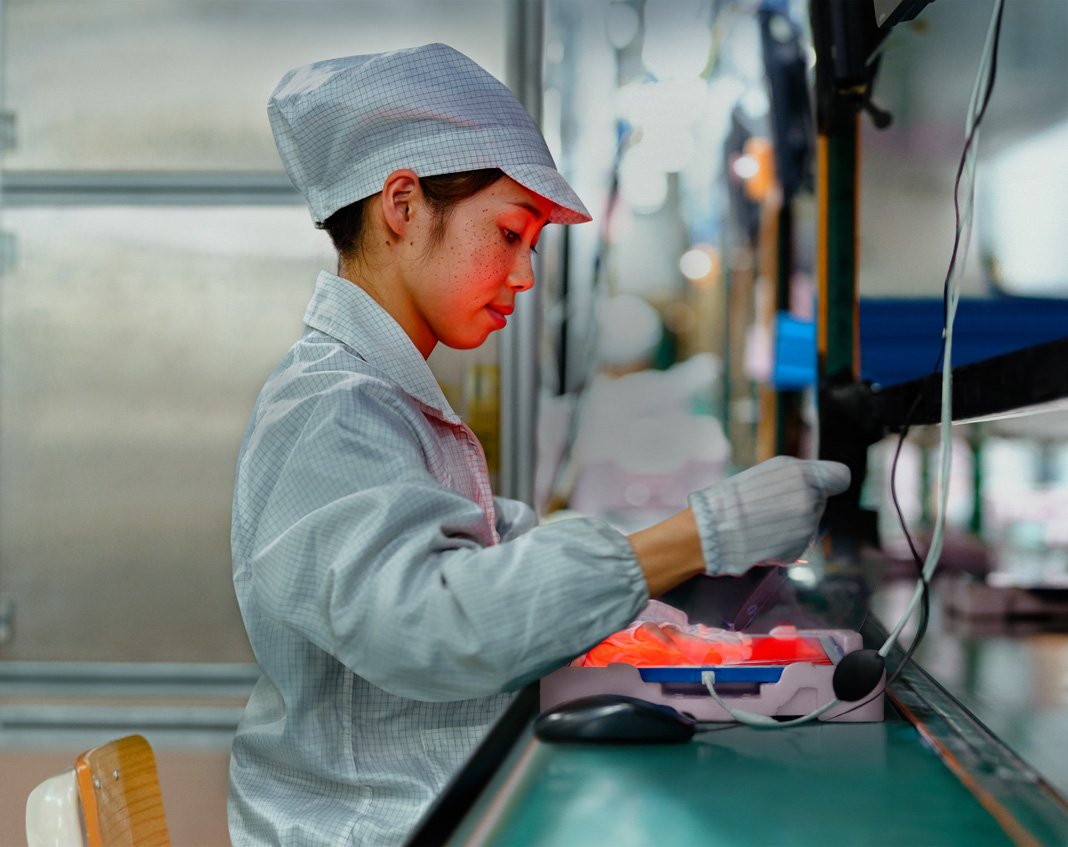Report: Apple suppliers in China tell ethnic minorities not to apply for jobs

iMore offers spot-on advice and guidance from our team of experts, with decades of Apple device experience to lean on. Learn more with iMore!
You are now subscribed
Your newsletter sign-up was successful
What you need to know
- A new report says that Apple suppliers in China are discriminating against ethnic minorities.
- The Information found job postings that told workers not to apply if they were ethnic minorities.
- The report details "widespread discrimination" against older workers, people with tattoos, and medical conditions.
A new report claims that Apple's suppliers in China are discriminating against ethnic minorities, telling them not to apply for jobs in the company's supply chain.
According to The Information:
The Information found more than 100 online ads for production line jobs containing discriminatory language across more than 30 companies in Apple's supply chain, including ads that discouraged applications from those over 40 or people with tattoos. The companies include assemblers of iPhones, iPads, Apple Watches and AirPods, as well as manufacturers of printed circuit boards, touch modules, camera lenses, batteries, data cables, cover glass and packaging. They include ads for some of Apple's biggest suppliers, such as Foxconn Technology, Pegatron, Quanta Computer, Wistron, Luxshare Precision Industry, Compal Electronics and Goertek.
The report says that ads "explicitly" stated that members of minority ethnic groups were not to Apple, one advert for an iPhone cover glass manufacturer stating "Tibetans, Uyghurs, Hui, Yi, Dongxiang from Tibet or Xinjiang regions aren't accepted."
The report says positions explicitly stated that the work was to be carried out for Apple.
By contrast, the report says some suppliers will accept workers from "government labor programs" because they received special benefits as a result:
The discriminatory hiring practices are another sign of the racism some minority groups face in China. Despite those practices, some Apple suppliers are willing to take minority group workers from government labor programs because doing so comes with special benefits. These workers are closely managed by Chinese authorities, and factories often receive financial subsidies with which they can pay them. Minority groups in these labor programs are typically escorted by security officers or managers from their villages to the factories and monitored throughout their workday, human rights researchers say.
The report says that some suppliers who won't hire minorities will accept Uyghur workers transferred from Xianjing. According to internal data, the 30 companies identified as posting discriminatory adverts employ over 1 million people in Apple's supply chain, the ads were posted to WeChat for the most part by recruiters working for suppliers.
An Apple spokesman stated that Apple monitors its suppliers for illegal and unauthorized job postings and that 300 had been removed this year. The company further stated the ads uncovered by The Information were either not affiliated with Apple or were not authorized by its suppliers.
iMore offers spot-on advice and guidance from our team of experts, with decades of Apple device experience to lean on. Learn more with iMore!
According to The Information, suppliers and recruiters seem to be blaming each other for the language used in the postings, but recruiters didn't deny the sentiments:
When asked why the factories wouldn't accept applicants from ethnic minorities, some recruiters on WeChat replied that minorities were tough to get along with or would create conflict among other workers due to their different beliefs. Others were more pointed."Is your company willing to accept people who love to fight, drink and cause trouble?" said an outside recruiter for Largan Precision, an Apple supplier that makes camera components.
Former employees at Apple said it was difficult for the company to control external recruitment processes, and that recruiters singled out for breaching rules often returned under new names. The report also says that ads discriminated based on age, gender, hair color, tattoos, and scars, as well as stating employees would have to undergo medical tests and screening for conditions.
In May, Apple published its supplier responsibility report for 2021, stating it found no evidence of forced labor or child workers in its supply chain. Yet Apple continues to come under scrutiny for operations in China related to its supply chain, notably regarding forced labor in the Xinjiang region.
The full paywalled report is available here.

Stephen Warwick has written about Apple for five years at iMore and previously elsewhere. He covers all of iMore's latest breaking news regarding all of Apple's products and services, both hardware and software. Stephen has interviewed industry experts in a range of fields including finance, litigation, security, and more. He also specializes in curating and reviewing audio hardware and has experience beyond journalism in sound engineering, production, and design.
Before becoming a writer Stephen studied Ancient History at University and also worked at Apple for more than two years. Stephen is also a host on the iMore show, a weekly podcast recorded live that discusses the latest in breaking Apple news, as well as featuring fun trivia about all things Apple. Follow him on Twitter @stephenwarwick9
